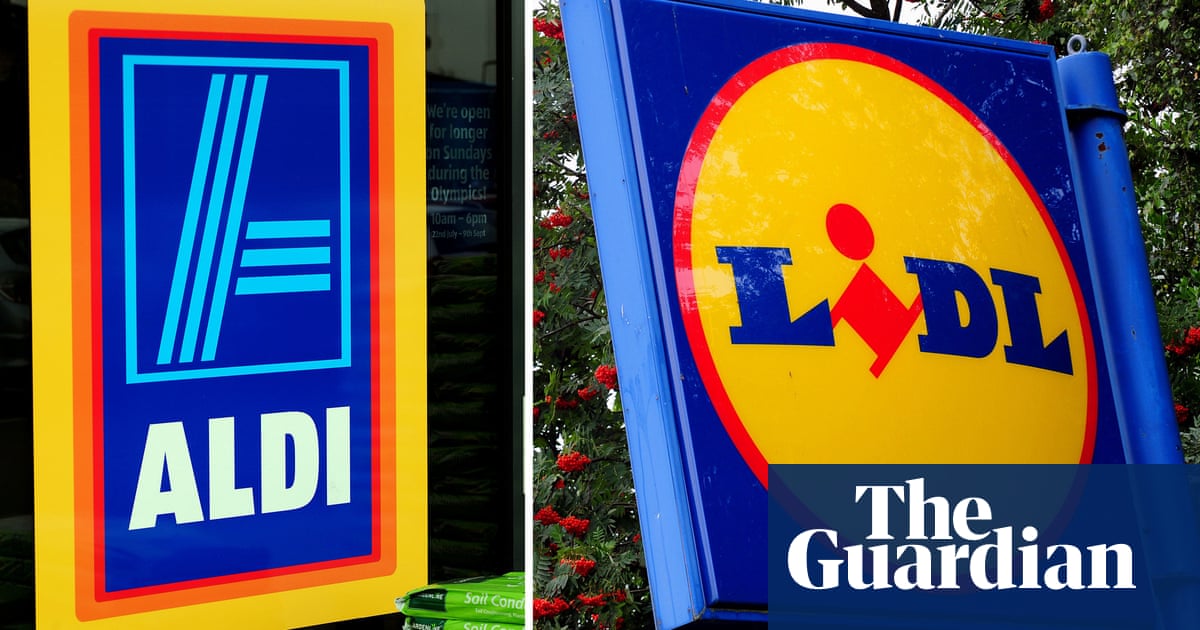
Aldi and Lidl have lost share of the grocery market for the first time in more than a decade, while Tesco’s share rose for the first time since 2016, amid a surge in online shopping during the pandemic.
Online grocery sales accounted for a record 15.4% share of the market in the four weeks to 21 February, up from 8.7% last year, as all the big supermarkets increased their provision for deliveries, according to market analysts Kantar.
Fraser McKevitt, the head of retail at Kantar, said: “Nearly a quarter of households bought groceries online during the past month, making the most of home deliveries especially to get hold of bulkier goods like canned foods, breakfast cereals and soft drinks. It’s been an extraordinary 12 months for online.”
He said 3m tonnes of food had been delivered to people’s homes over the past year and the habit seemed to be sticking, with those who bought online happier about the service they received than those who shopped in stores.
The switch to home deliveries, and a desire to shop either in a big supermarket that can supply everything or a handy small local store, led to a change in fortune for Lidl, which does not sell online, for the first time since 2010. Its fellow German discounter Aldi last year began offering online orders for picking up in store, or for home delivery via Deliveroo, in a limited number of outlets. It has been losing market share since May 2020.
Last month was the first time in decade that both Aldi and Lidl lost share.
McKevitt said the discounters’ sales “are up and up strongly, but sales are up more everywhere else. They have lost an opportunity but there is a question of what will happen once the pandemic ends.”
He said Tesco, by far the UK’s biggest supermarket business, had benefited from all the trends – increasing sales online, at its large supermarkets and at its small Tesco Express stores. Morrisons, Iceland and independent convenience stores also continued to gain share.
Supermarkets and other grocers have been enjoying strong sales during the pandemic.
With cafes, restaurants and many school and workplace canteens closed, British shoppers spent an extra £15.2bn on groceries in the past year, cooking up 7bn more meals at home and an additional 2bn cups of tea.
The average household has spent £4,800 on groceries in the pandemic so far, an increase of £500 compared with normal times.
The pace of sales growth rose to 15.1% in the four weeks to 21 February, the fastest pace since June last year when lockdown was still in place.
With lockdown restrictions beginning to ease later this month, a year on from a spike in sales amid fears of a national lockdown, McKevitt said he now expected sales to start dropping back year on year.
“We will have annualisation against last March when there was stockpiling and 20% sales growth,” he said. “As soon as the pandemic unwinds and out-of-home dining opens, including school canteens, there will be a change. As the year goes on, and hopefully the [pandemic] situation gets better, the performance [of supermarkets] is going to get worse.”
McKevitt added that not all spending in supermarkets had increased. “With fewer social occasions in the diary, personal care has fallen down the agenda and spending on toiletries dropped by 1%. Liquid soap and hand sanitisers proved to be an understandable exception and sales grew by 127% over the past year,” he said.












